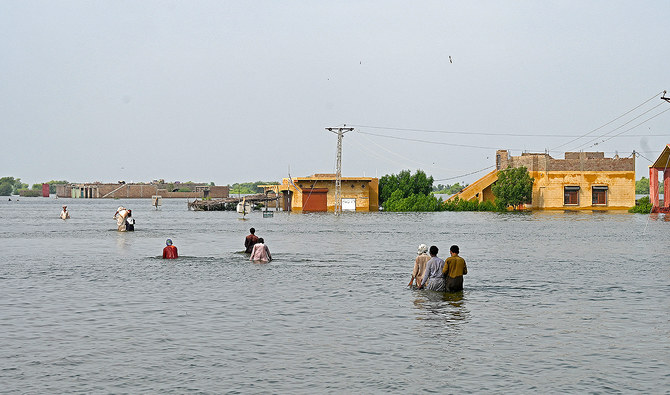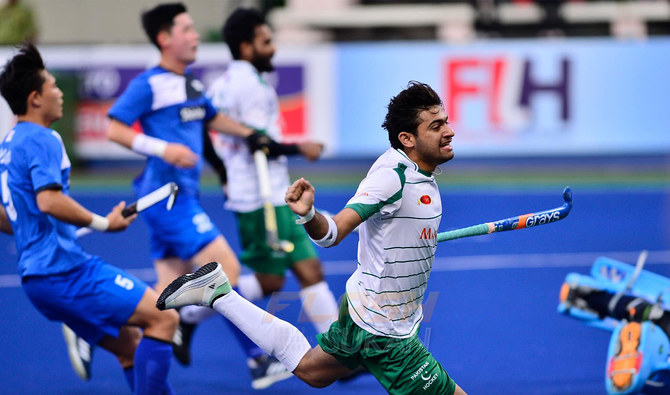ISLAMABAD: The World Bank has approved $1.692 billion in financing for five projects to support people living in flood-affected areas of the Sindh province in southern Pakistan, an official statement by the bank said.
Official figures released by Pakistan say over 1,700 people were killed in record rains and floods this summer while more than 33 million people were affected by flash floods that swept away homes, swathes of crops and hundreds of bridges, roads, and other critical infrastructure.
The World Bank said of the five projects, three would support rehabilitation and housing reconstruction and the restoration of crop production for vulnerable communities, while another two projects would focus on health services for mothers and children.
“Sindh was the province worst affected by the 2022 floods. There were huge damages to the housing, health, and agriculture sectors and people lost their livelihoods,” Najy Benhassine, World Bank Country Director for Pakistan, said in the statement.
“Beyond the rehabilitation and reconstruction of damaged houses and infrastructure, our engagement in the flood response effort is an opportunity to strengthen resilience, and reform institutions and governance structures.”
The Sindh Flood Emergency Rehabilitation Project, which is worth $500 million, will help rehabilitate damaged infrastructure, provide short-term livelihood opportunities, and strengthen the government’s capacity to respond to disasters.
“The project will help restore and improve critical irrigation and flood protection infrastructure, water supply schemes, roads, and related infrastructure. At least 2 million people — approximately 50 percent of whom are women — in the most flood-affected districts will benefit from the restoration and the resilient reconstruction of critical infrastructure,” the statement said.
The Sindh Floods Emergency Housing Reconstruction Project, also worth $500 million, will support owner-driven and multi-hazard resilient reconstruction of core housing units.
“A housing subsidy will provide reconstruction and restoration grants for 350,000 housing units (almost 20 percent of the total housing rehabilitation needs for Sindh).”
The Sindh Water and Agriculture Transformation Project, worth $292 million, will increase agricultural water productivity, improve integrated water resources management, and restore crop production by flood-affected farmers.
“More than 385,000 households (approximately 1.9 million people) are expected to benefit from the project,” the statement added. “As an immediate response to the floods, the project will provide cash transfers to approximately 300,000 flood-affected farming households to help restore crop production through the purchase of seeds, fertilizer, and other critical inputs.”
The Sindh Strengthening Social Protection Delivery System Project, worth $200 million, will strengthen the provincial social protection delivery system and enhance access to and utilization of maternal and child health services.
Lastly, the Sindh Integrated Health and Population Project, also worth $200 million, will help improve both the quality and utilization of basic reproductive, maternal, newborn, child, and adolescent health and nutrition services.
“It will also help in the rehabilitation and reconstruction of health infrastructure that was damaged in the floods, disrupting the delivery of these services.”
The World Bank said that it would continue to support the government and people of Pakistan to recover from the recent flood emergency and strengthen long-term resilience to climate-related shocks.
















